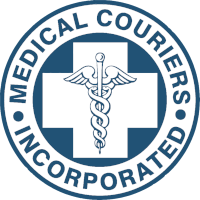The healthcare logistics market in North America is pegged to grow by $18.4 billion at a Compounded Annual Growth Rate (CAGR) of 9.34% between 2022-2027. Some of the key factors driving this growth are the adoption of next-gen technologies including, drones, artificial intelligence, blockchain, and the Industrial Internet of Things (IIoT) across segments, including transportation and warehousing.
Based on the events in the first few months of 2023, it’s clear the sector is undergoing large-scale transformation. There’s no denying that only the logistics providers who value innovation and automation and who strive to be more sustainable will thrive in the coming era.
In this article, we take stock of the first half of 2023 in healthcare logistics and what makes MCI stay ahead of the curve.
Healthcare Logistics Updates in 2023 That You Should Know About
The Covid-19 pandemic, the emergence of AI, and climate crisis are transforming every industry, and the healthcare sector is no exception. Here are eight important events that took place in the first half of 2023 that indicate where the healthcare logistics space is headed.
1. Home Healthcare Innovation is Trending in the Post-Pandemic World
By exposing the shortfalls in healthcare, the pandemic unleashed transformations in the sector, such as the rise of at-home healthcare. To make decentralized care more sophisticated and seamless, home healthcare providers are adopting technologies such as Electronic Health Records (EHR) for digitizing their processes.
The EHR systems are helping caregivers plan, coordinate, communicate, document, and manage medication for their patients more accurately and efficiently than ever before. On-time last-mile delivery of therapies, prescriptions, and other medical supplies is as integral as digitization to improve the overall quality of treatment.
2. Amazon Launches RxPass – An All-You-Need Prescription Drug Delivery Subscription
Speaking of home health, in January 2023, Amazon announced RxPass, a prescription subscription. The Amazon Pharmacy was launched in 2020 and can be accessed via the website or the app by creating your profile and uploading the prescription. The medication is then delivered to the user’s doorstep free of cost.
We see this as evidence of home health care becoming the standard for chronic and non-life threatening issues. We predict that more and more prescriptions will be available for delivery in the future.
3. Welcoming the Era of Sustainability in Healthcare Logistics
Saving lives doesn’t exempt us from doing our part for the transition for a more sustainable world. Medical couriers the world over need to understand our impact on the climate crisis and take steps towards mitigating our emissions as much as we can.
Cardinal Health, for example, announced a Science Based Targets initiative to limit GHG emissions by 50% by 2030. The company has also vowed to reduce its supply chain emissions by injecting more efficiency into transportation and logistics by consolidating shipments, reducing partial loads, and tracking and optimizing vehicle routes.
In May 2023, the State of Sustainable Fleets Market Brief reported widespread support from the federal government and the private sector for decarbonizing commercial road transport. The report’s findings signal the phasing out of new diesel engine development and growing efforts in making medium- or heavy-duty battery-operated vehicles more accessible for logistics, cargo, and transit.
Of course, we’re no stranger to the movement towards sustainability. Our California fleet has been made of hybrid electric cars for the past several years and we are regularly looking for ways to mitigate the emissions we do create. In January, we partnered with Evertreen to plant 2000 trees to offset emissions and we have the opportunity to grow our forest with them each year.
3. US is Leading the Pack in Cold Chain Storage
We can’t expect to see tech that delivers at scale without having therapies that can be created at scale. And therapies created at scale also need to be stored at scale. The best way to store and keep therapies fresh? Cold chain! So to say the cold chain market in the US is booming would be an understatement.
Driven by factors like aging inventory, e-commerce, and industry consolidation, the number of cold chain facilities in the country grew by 8.6% between 2020-21 and added 7.5% more growth from 2021 to mid-2022. The rate of expansion becomes more staggering in the context of 2013-2020, when the yearly average stood at a mere 2.2%.
In April, Lineage Logistics teamed up with Rebound Technologies to unveil the world’s first freeze suppression point system. This new technology lets users freeze more products with higher efficiency and better moisture control.
Looking at the spate of announcements in the first few months of 2023, we predict that groundbreaking cold chain innovations throughout the US will continue for the foreseeable future.
4. FedEx Permanently Retires Its SameDay City Service
On the other side of the common-carriers coin, FedEx announced the permanent shutdown of its SameDay City service in March 2023. This logistical disruption left hospitals, labs, and pharmacies struggling to fulfill their urgent orders in cities throughout the US. It was not the first time FedEx had announced such a move, as the shipping giant has introduced a slew of cost-cutting measures early this year to deal with cooling demand because of high competition.
Will we see a consolidation of common carriers in the coming years? Maybe.
5. Growing Affinity Towards Local and Regional Last-Mile Carriers
With leading logistics players like UPS and FedEx hiking their shipping rates, more and more customers are now opting for local and regional last-mile providers. This trend was first witnessed in 2020 when 17% of retail volume shifted to local and regional carriers vs. 3.8% in 2019.
This trend is reflected in healthcare logistics as well. To support clients that have been inconvenienced by frequent service disruptions by national carriers, MCI has created the Medical Couriers Alliance: a web of highly competent regional partners with expertise in healthcare logistics. Supported by our proprietary technology, The Medical Courier Alliance offers a seamless, safe, and on-time end-to-end experience for all our clients. This year, we’ve expanded coverage to almost all of the United States.
MCI is on Top of Trends and Ready for the Future
Sustainable operations, AI-enabled technologies, and infrastructure expansion have dominated the healthcare trends in the year so far – and we’re on top of it. MCI is committed to revolutionizing healthcare logistics with our multi-pronged strategy involving cutting-edge technology, resilient network building, and a culture of care toward patients, staff, and the environment.
Our future-forward approach has helped us stay ahead of the curve for over 50 years. We will never leave you in the lurch with sudden service disruptions because we understand how important logistical certainty is in healthcare. From fulfilling short-haul same-day deliveries to transporting temperature-sensitive CGTs, we will get your precious packages where they need to be, on time, and in perfect condition.
Click here to reach out to us to see how we can add value to your business.











